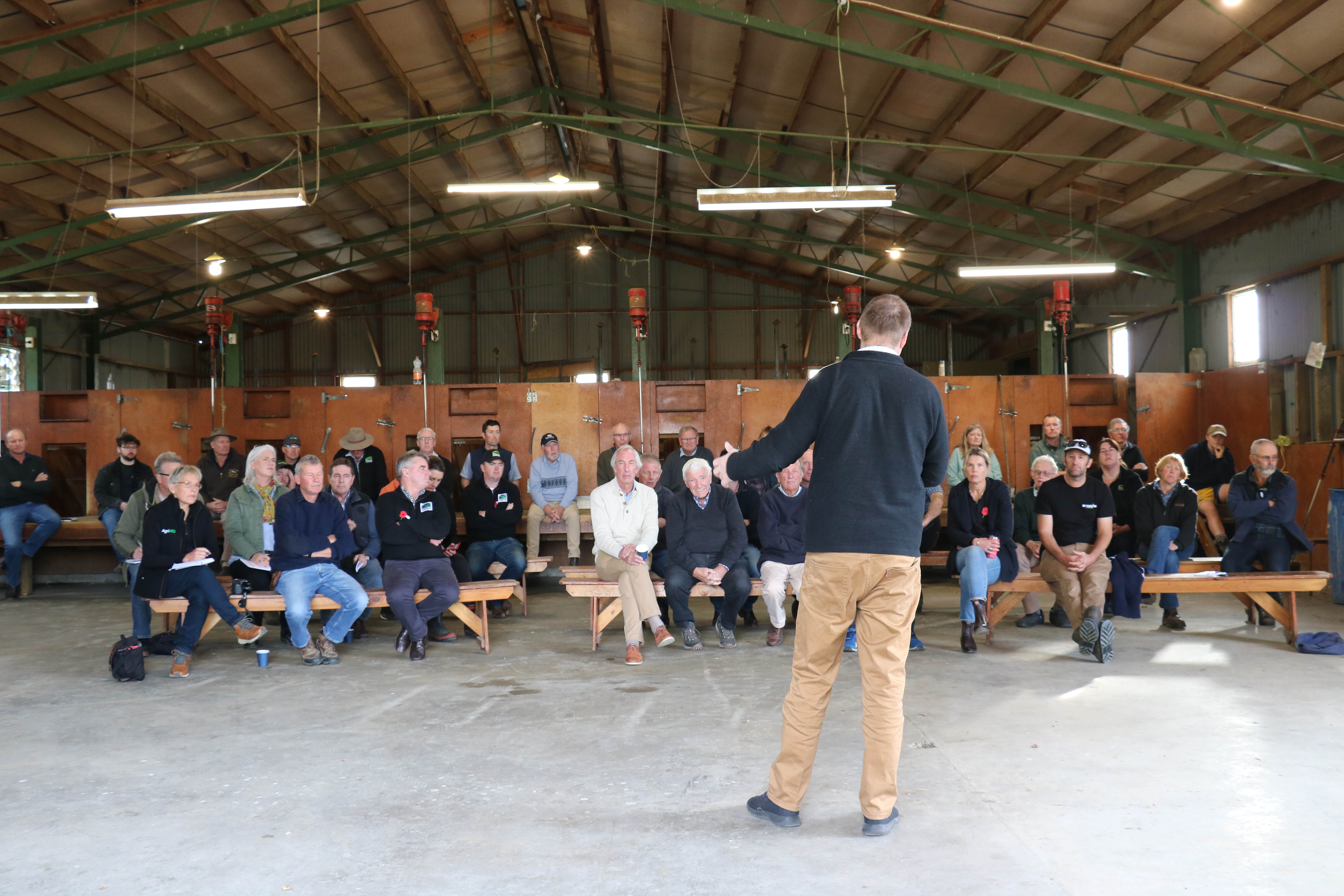ECan ‘needs clear directive’

Local farmers have welcomed the Government’s proposed changes to the Resource Management Act but they are concerned that Environment Canterbury is slow to pick up on the signals of change.
The first RMA Amendment Bill aims to make urgent changes to the resource management system to improve resource management laws, give greater certainty to consent applicants and support development in key sectors - including farming.
This includes repealing intensive winter grazing regulations, amend stock exclusion rules for sloped land and suspending the requirement for councils to identify new Significant Natural Areas for three years.
Mid Canterbury Federated Farmers’ president David Acland welcomed the “pragmatic” changes and said he looked forward to seeing them filter through.
Rural communities and associate agricultural minister Mark Patterson spoke to about 50 Mid Canterbury farmers at Mount Somers Station last week as part of a nationwide woolshed tour.
He acknowledged that farmers had been under “huge pressure with a confluence of events” including adverse weather, high interest rates and really low returns.
Patterson said the Government was committed to cutting as much as it could from compliance costs, with the latest changes to the RMA seen as a way to get gains from the low-hanging fruit.
The intent was to target changes that could take effect quickly to give certainty to councils and consent applicants while legislation to replace the RMA was developed, he said.
While local farmers said the changes were “encouraging” they wanted to know if the Government planned to give a clear direction to regional councils.
Patterson said farmers and councils were operating “in a grey area” until the new legislation came through.
There had been a mixed reaction from regional councils. Some wanted to bed things down under the old rules while others had pulled back not wanting to waste ratepayers’ money, he said.
Patterson said he had received “very strong feedback” from the woolshed tours that ECan had been “unfriendly to farmers” with lots of impractical hoops to jump through and very high compliance costs.
However, when pushed, Patterson said the Government wanted to move away from a “one-size-fits-all model” and did not plan a prescriptive response while giving regional councils as clear a signals as we can.
“We are pushing localism,” he said.
Kerry Harmer from Castle Ridge Station said the Government needed to give regional councils clear direction.
“The way consent conditions are looking at the moment, there’s a whole community going to disappear.
“ECan is pushing beyond national rules, we need input from government to pull back on ECan rules.”
ECan is not going to change unless given a clear directive, she said.
Patterson said regional councils were “getting very clear messages” and the Government was committed to finding “local solutions for local problems”.
When asked when the new regulations would come into effect, Patterson said they would be introduced to the House next month and would likely come into effect “towards the end of the year”.
He said this was an opportunity for farmers to show they can “get it right” and do what is needed to protect the local environment.
“There will be plenty of people out there looking for bad practice over winter.”
Patterson said the changes were not about winding back the need to care for the environment but about making it more practical to do so.
Federated Farmers vice-chairperson Colin Hurst said the was a “real onus” on farmers to get winter grazing right this year.
He was critical of flawed stock exclusion rules and said “fencing waterways in some cases is basically banning farming”.

“We need to be empowering farmers and supporting them to make further improvements on their properties instead of tying them up in needless red tape.”
Harmer said the red tape that was being imposed by ECan “pushing over and above the national rules” could have unintended consequences.
Like how farmers had been told to fence areas for sheep in its consents.
“The merino industry is going to disappear. The only thing you can run is cattle,” she said.
The lack of profit in sheep and wool was another hot topic for discussion with Patterson, along with rural health care, high rural banking costs, wilding pines and freshwater storage and management.

- Sharon Davis

